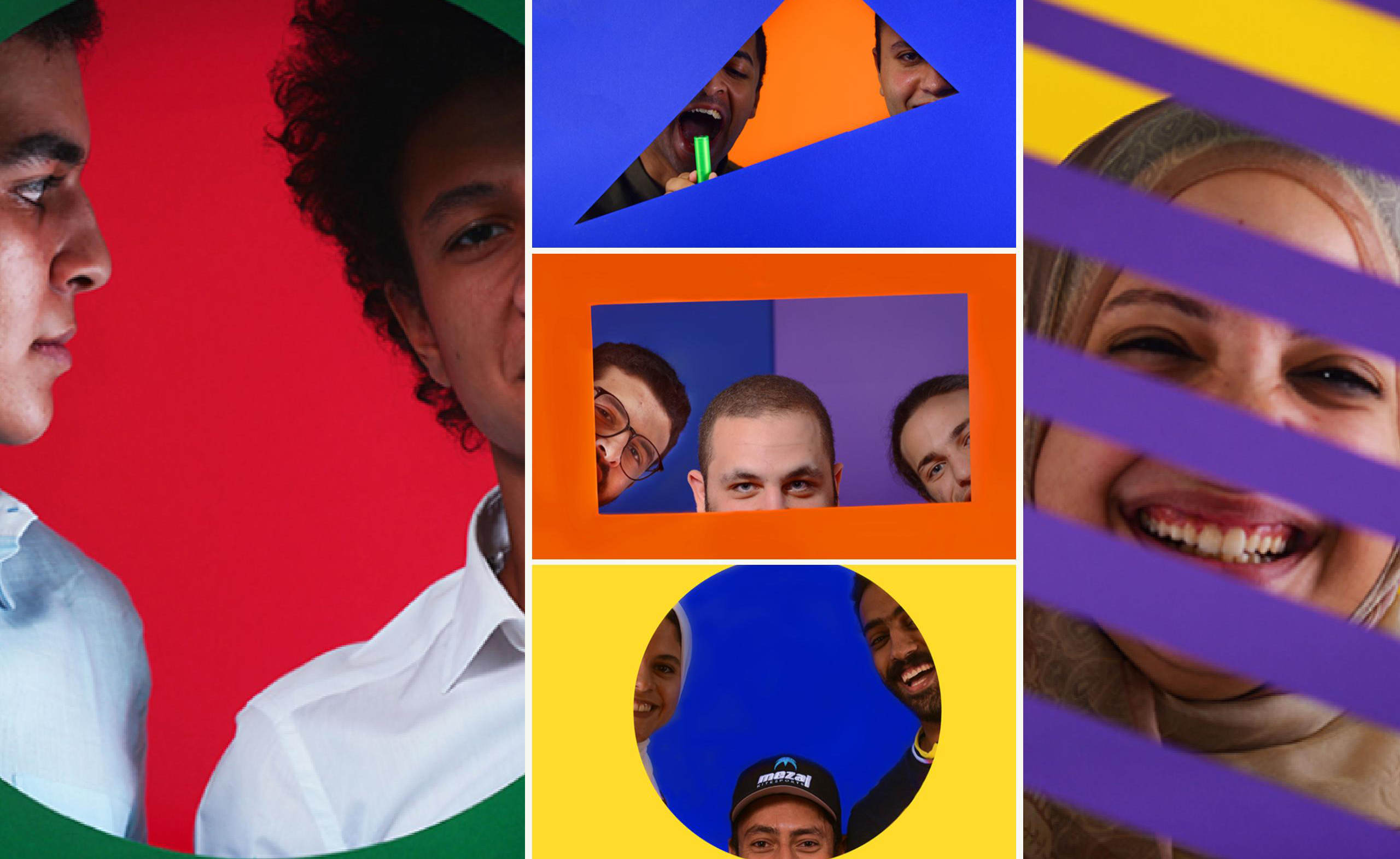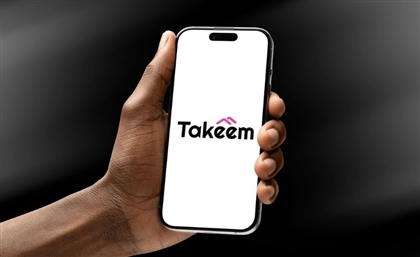Meet the 5 Teenage Entrepreneurs Pitching their Ideas at the Undergrad Startup Challenge
MO4Good joined forces with the AUC’s Entrepreneurs Society and GUC’s Canvas in a mission to find Egypt’s youngest and most promising entrepreneurs, just as they juggle their time between school lessons and restless initiatives to transform their societies - and here's the 5 finalists.

In a mission to find and support student entrepreneurs to become industry gamechangers, MO4 Good partnered with two of Cairo’s restless university student clubs, the American University in Cairo’s Entrepreneurs Society and the German University in Cairo’s Canvas, for the first edition of the Undergrad Startup Challenge; a competition that will see five finalists battle it out in front of a stellar panel - composed by Cairo Angels, Riseup, Injaz Egypt, MO4Good and Startup Scene - for the first prize this Saturday at the heart of Cairo’s downtown tech valley, The Greek Campus.
For the past couple of years, the Entrepreneurs Society and Canvas have been relentlessly working to raise awareness amongst university students, and shed light on the entrepreneurial scene. "Our mission is to bridge the gap between stakeholders in the entrepreneurial hub to create a more inclusive environment where all resources are found and shared," says Jenny El Boushy, CEO of the Entrepreneurs Society. Boasting 80 members, the ES holds countless initiatives, from interactive workshops, startup challenges, to exhibitions, and networking events. Similarly, the GUC's Canvas, whose nearly 70 student members trade theory for entrepreneurial practice every day. "Now, with the challenge, we are hoping to help some startups from the GUC get mentorship, the experience of interacting with real investors, and access to important connections," says its CEO, Mahmoud Mohamed Fathi Abou Shanab.
From socially driven youngsters seeking ways to generate renewable energy, to designers and engineers setting off to create a national industry to boost Egypt’s prominent position in the kitesurfing discipline - not only as a sport but also a source of national income - these five finalists have been juggling their time between university classes and business plans, in the pursuit of a project that would see their vision come to life. Here’s the five young startup teams that made it to the final.
Shatla

Founded by Seif Khaled and Abdallah Sabah, the startup is one of the youngest teams to participate in the competition. The environmental startup, first conceptualised by 16-year-old Sabah, strives to improve the Egyptian agricultural industry through the production of a distinct organic fertiliser. Instead of composting, the entrepreneurs use a resource un-utilised: red wiggler worms.
“I have a scientific background and I started testing things when I was 12,” Sabah says, raising eyebrows. “Since I was young, I was a science freak and I’ve done experiments on my own,’ says the young entrepreneur, as he explains how he set off to produce fertilisers out of organic waste. The startup recycles organic waste using various worms and bacteria in order to produce a form of fertiliser known as vermicompost.
Kicking off in their garage, the young entrepreneurs created a particular technique for vermicomposting - a process which, contrary to composting, doesn’t imply the loss of nutrients. “But this specific worm, the red wiggler worm, is not common in Egypt.” Khaled points out, as he unveils how they secured a deal with the Ministry of Agriculture, in order to obtain the worms, and obtain an advisor from the ministry on board.
The company’s vermicompost, they claim, that has a higher nutrient density, maintains microbial life that naturally fertilise the soil overtime, and can be adjusted to target specific nutrients in order to meet specific targets for crops. Shatla is currently working on stocking up on resources, worms in specific, in order to increase their production rate to a suitable commercial rate in order to meet supply demands.
Core

Spearheaded by 23-year-old Maie Koraiym - a fresh Pharmacy GUC graduate and a violin musician - the startup created a mobile app and a platform to help students. In partnership with Ahmad Bektash, the entrepreneur allows students to access multimedia content videos, recordings, files and pictures which help them memorise, solve, understand or study their own (personalised) school material, through a freemium model.
“We were talking about the problems we face in our learning path, and bit by bit we thought we could do something instead of just talking,” Koraiym says. We’ve been working on it for two years and we pivoted a lot. We actually want to fix the main problems of education, tackling private tutoring - so we focus on it being personalised. We want to provide a convenient and cost-effective, because private tutoring is expensive. We are starting by providing supporting material with a freemium model and as we grow, we’ll offer full online courses with a gamification factor,” explains the entrepreneur.
Having participated in GUC’s Imagine competition and the Entrepreneurship Week in Maarborg, Germany - reaching second place - the startup has recently pitched at the AUC’s own accelerator Venture Lab. “At the time of the competition we had an entirely different business model. we wanted to solve the private tutoring industry by taking education online. After market research we decided to keep our operations but shift it to blended learning - combining offline education with technology. So far, users overwhelmingly prefer this.”
Electrica

“It started with something big,” says co-founder Ahmed Samir. “We had the idea of producing our own electrical vehicle, and we started talking about problems electric cars face around the world,” the entrepreneur narrates, as he recalls the inception of their sustainably energy project. Together with Wael El Selouky, Samir is setting off to recycle Lithium Ion cells to create Lithium storing units that can be used to store energy, a technology that could be particularly relevant for solar energy projects.
“As we were talking, we realised the batteries are the most expensive part of electric cars; and we found that in Egypt, the type of batteries used to store energy with solar panels are very expensive and only have a one-year life span. Lithium batteries are not used because they got expensive with the recent inflation, so we thought about recycling dead laptop batteries,” he explains.
The students, who are just about to graduate from GUC’s faculty of Engineering, are creating modules that could be used for a wide variety of applications such as solar systems, power tools, and public lighting. “We are proud to say that all our productions are locally produced, which is why any more inflation in the economy will not affect our prices,” El Selouky says.
Having started by collecting dead batteries to create a prototype, the entrepreneurs are now approaching solar power companies to provide them with batteries to store their energy. “Solar panel companies face problems storing the energy, so we want to try our MVP on their systems,” the entrepreneurs explain. According to e-recycling company Recyclobekia, between one and 1.5 tons of dead batteries are discarded every day in Egypt.
“For 1KwH, you need 140 battery cells. Each laptop has six, which means you need 24 dead laptop batteries; which we then group according to measurement tests to measure capacity and voltage. These batteries store solar energy, that is then converted to electrical energy,” Samir explains. “With a huge acceptance rate of 86 percent, the companies were ready and willing to try the product and start purchasing if it proves itself. Our next step is to get over with the final trials and start working on producing larger units for our market,” he concludes.
Comunitee

Young Mohamed Dorgham, Yussuf Sakr, and Mohab Amr have big goals: they want to reach 70,000 Egyptian students and leverage their work at student clubs to help them shape their own future. “We want to empower clubs, as businesses will then use them as reference,” Dorgham says. Indeed, it was no coincidence the three entrepreneurs hail from university student clubs - Sakr was head of fundraising in Bedaya for four years, while Amr was an active member of debate club TIQ, and Dorgham himself a campus director for the Hult Prize.
“It all started as a search engine for student clubs,” says Dorgham. “We used to start a lot of projects and faced a hard time finding developers or designers. So we wanted to get all active working groups from university, like TEDx GUC, Hult Prize, and Canvas, in one database. “But as we started, we realised we could create more value as long as we are doing it, so we built an entire platform that will help working groups to manage and recruit people,” Amr adds, as they unveil their plan to systematise student clubs, in a platform that would later add its own recruitment site for SMEs and startups.
As the platform needed users, the entrepreneurs crafted a system that would soon open up plenty of doors. “We thought of offering discount coupons and partnering with corporates focusing on the 17-23 demographic,” Sakr says. “It is a really attractive market for businesses like entertainment, gyms, or bookstores. These businesses are paying a lot of money to reach students; they can spend LE 16,000 for three days at the university, so we are offering them a coupon system for students to join the platform” he adds.
The idea for the platform is to “hold everyone accountable for what they do,” Dorgham explains. “The more a member works, the more rating t hey will get and get job opportunities.” Having partnered with seven clubs at the universities, the startup now reaches over 1,000 students and aims at adding 15 clubs and seven businesses in the near future.
Mezaj Kitesports

The team seems poised for success: AUC colleagues, Omar Gaballa, Touka Aref, and Ali Hisham, put together their knowledge in mechanical engineering, architecture and marketing to craft an eco-travel business that could potentially drive the beginning of a kitesurfing industry in Egypt, a country whose powerful winds and natural resources could potentially place him as a top destination for the sport.
“For the past two years, Egypt has hosted the Kitesurfing world cup and we have have really nice locations, like Gouna and Ras Sidr,” Gaballa says. “Equipment is very expensive, but we can do it locally and boost the industry,” he adds, as he unveils the prototype they’ve developed so far.
With five boards in production, and their two kites already sold, the startup is working with a factory located in Sri Lanka, setting off to compete with the 15 global brands hogging the market now. “Around the world, there are 15 global brands, two of which have 25 to 30 percent of the market,” Aref says. “We will soon have the lowest prices in the world,” she adds. While kites for the sport cost between $1,500 to $3,000 in the global market, the Egyptan entrepreneurs plan to sell the kites for prices ranging from $700 to $1,300.
But behind their passion and their will to kick-start a national industry the entrepreneurs share a socially-driven goal. “For us, it’s about making the equipment more accessible for more people to have the opportunity to learn. The sport growing, and it’s soon going to be an olympic sport, so we want people in Egypt to be able to do it,” Gaballa says.
Photography by @MO4Network.
Photographer: Osama Selim.
- Previous Article Bassita: Click Funding for a Better Egypt
- Next Article Giga Works - A Story of the Middle East’s First Virtual Reality Filming Startup






















